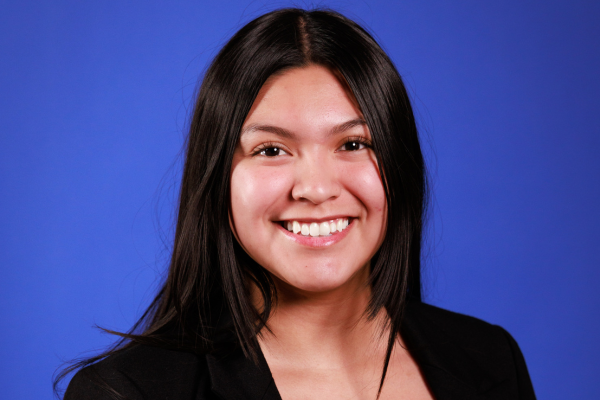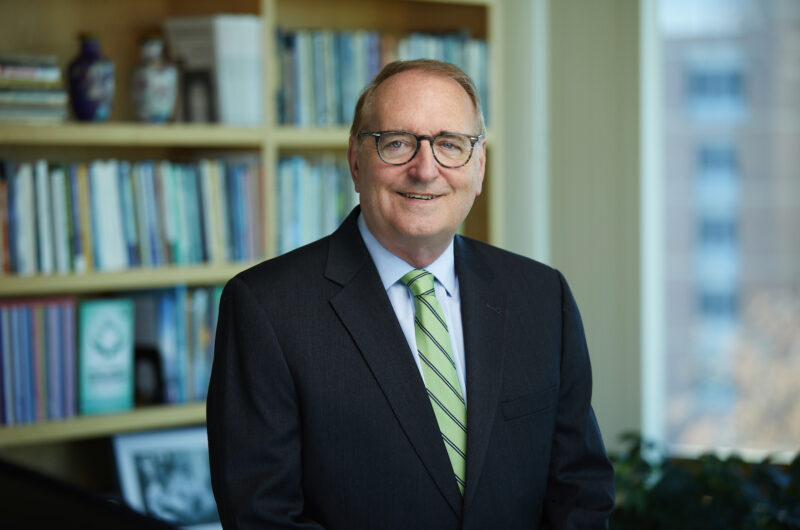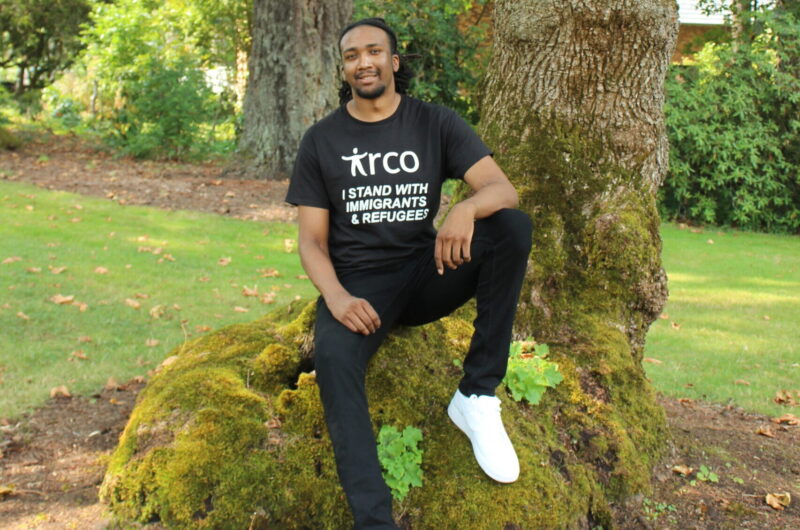by Monet Sutch, community partners team member
On January 16, College Possible Oregon participated in MLK Day of Service. We’ve interviewed Monet Sutch, community partners team member, to learn more about why this service day on is impactful to our teammates, the students we serve and our community as a whole.
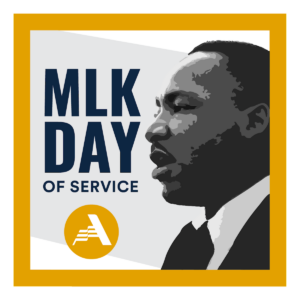 Would you mind sharing a bit about the history of MLK Day as a day of service, and how College Possible and AmeriCorps fit into that context?
Would you mind sharing a bit about the history of MLK Day as a day of service, and how College Possible and AmeriCorps fit into that context?
The history of MLK Day as a nationally and federally recognized holiday is a long one, to say the least. First drafts of a bill to honor Dr. Martin Luther King Jr. were introduced on April 8th, 1968, just four days after Dr. MLK’s assassination. Legislation to make MLK Day a federal holiday officially passed on November 2, 1983, when President Ronald Reagan signed the King Holiday Bill into law, designating the third Monday in January a federal holiday in observance of the civil rights activist. However, MLK Day wasn’t celebrated in all 50 states until the year 2000.
It took 32 years of ongoing advocacy from labor unions, pressure from the public, congressional hearings from Coretta Scott King, calls to action from the National Council of Churches, three million signatures delivered to Congress, continuous pressure from both the Senate and Congress, Stevie Wonder releasing “Happy Birthday” (a protest song in favor of MLK Day, and released on Dr. MLK’s birthday) and a Super Bowl protest from the NFL before national dialogue about the holiday had gained enough traction to be signed into law.
However, MLK Day had already been practiced as a day of service as early as January 15th, 1969 when the King Center had begun to celebrate his birthday with a privately held ecumenical service. Although privately held, these services garnered positive attention and eventually posed as the model for other observances of his birthday nationwide.
It wasn’t until 1994 that Congress passed the King Holiday and Service Act, officially designating MLK Day as a federal holiday and National Day of Service.
In his final speech, Dr. MLK Jr. preached, “…Everyone can be great…because everyone can serve.”
This sentiment encapsulates a values system that places community over the individual and understands that only together can we truly find joy, liberation and peace. No single person can fix the despair of a whole planet, but hundreds of thousands of individuals working together, even in the smallest capacities, can make an impact that spans beyond lifetimes.
These commitments are at the core of what sustains service through AmeriCorps and College Possible. As members of an organization with a longstanding tradition of service, it is imperative that we celebrate MLK Day as an opportunity to show up for our communities in meaningful ways.
What did the College Possible Oregon team accomplish during their day of service?
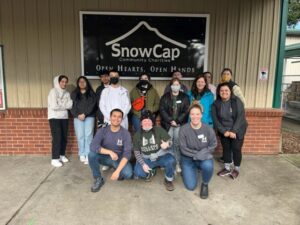
For the first time since 2020, College Possible Oregon hosted in-person MLK Day of Service events at three sites with three different community partners across the Portland Metro and Beaverton area. There were 50 College Possible team members and 28 students present across the sites.
Over the course of three hours, our teams led maintenance projects on two large community gardens (one on the East side of the Willamette, one on the West) and removed multiple truck-loads of trash from NE Portland along MLK Jr. Blvd.
The work done in the garden directly addressed food scarcity and limited access to nutritional meals within varying communities while the community cleanup in NE Portland prevented an enormous amount of trash from entering the Willamette and Columbia River systems. I am very proud of our teams, as I believe we did a stellar job mindfully curating and enacting service events that were inclusive of the whole team while keeping MLK Day of Service values at the core of the action.
You mentioned that College Possible students participated in the day. Why?
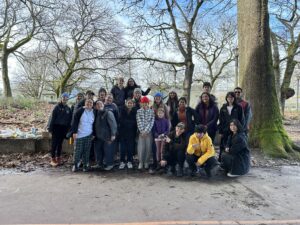
Service events allow students to get involved and invested in their communities in meaningful ways, and opens doors to volunteer opportunities, internships and even long-term jobs or fields of study such as social work, botany, veterinary medicine and the arts.
On a more interpersonal and emotional level, service projects directly confront the ambient anxiety, fear, and hopelessness that many youth struggle with today, especially in the wake of the lockdown years. They are part of a generation that is understandably struggling to imagine a future that includes vast possibilities for thriving.
Service and action are two antidotes to the rampant apathy that leads to hopelessness. Service allows anyone to see and experience their roles as an active, integrated member of a community as opposed to someone isolated from it.
How can readers get involved in continuing Dr. MLK Jr.’s work?
There was an enormous amount of work, activism, tenacity, and intention that went into getting MLK Day honored as a national and federal holiday. Thirty-two years of protest and action weren’t maintained for a simple “day off.” That work was done so that our country could have dedicated time to serve others in ways that Dr. MLK Jr. passionately advocated for during his brief, impactful life. For years, the King family and those at the King Center have coined MLK Day of Service as a day ON, not off, as a means to honor their father and all he stood for.
At a congressional hearing in favor of making MLK Day a national and federal holiday, Coretta Scott King said, “The greatest gift Martin could receive is if people of all racial and ethnic backgrounds celebrate the holiday by performing individual acts of kindness through service to others.”
Acts of service don’t need to be monumental to make an impact. Even the smallest acts of kindness create long-lasting ripples. MLK Day is the only nationally and federally celebrated day of service. There is no better time to focus our energies outward, provide care for others, and experience firsthand how serving others can create positive impacts.
Want to devote a year of year of service as a College Possible AmeriCorps coach? Browse our open positions today and learn more!
Read more about the history and legacy of Dr. Martin Luther King at these sources.
